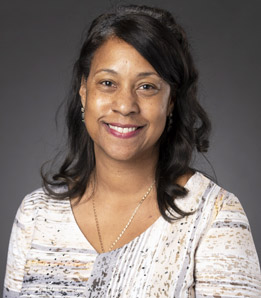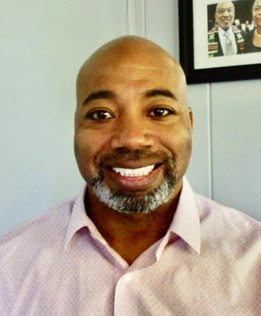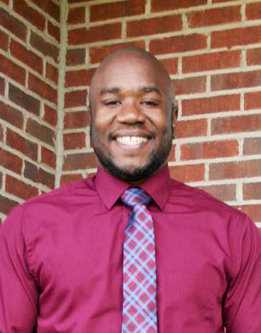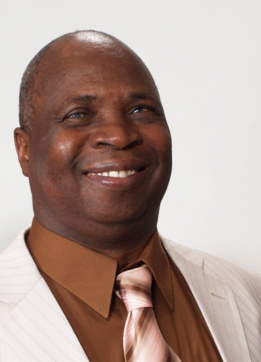|
|
|
Anti-Racism Teach-Ins: Policy and
Practice for Anti-Racism
(This is part 2
of a series.)
By Lynne Hamer,
Ph.D.,
Special to the Truth
Faculty and
students from the University of Toledo have organized
teach-ins, open to the community hosted via Zoom, to
work to understand and challenge white supremacy. This
involves not just being passively “not racist” but being
actively “anti-racist,” which requires learning how to
implement anti-racist policies and practices on the
individual and institutional levels. |

Hope Bland, PhD |
|
Ibram X. Kendi (2019) defines racist as “one who is
supporting a racist policy through their action or inaction
or expressing a racist idea.” He defines antiracist
as “one who is supporting an antiracist policy through their
actions or expressing an antiracist idea” (p. 11). Being
antiracist sounds easy in Kendi’s words, and most of the
organizer/presenters of Anti-Racism Teach-Ins focus
on how to get started.
Hope Bland, PhD, adjunct
professor at the University of Toledo for both the
Africana Studies program and Social Work and the
Human Trafficking and Social Justice Institute,
will take the series into the administrative realm with her
presentation, The Importance of a Racial Equity Plan in
Educational Institutions. Bland notes
the need for educational institutions to place "Race" at the
center of diversity initiatives aimed at achieving equity
and justice in schools. In
her presentation, Bland will critically examine systemic
racism and its effect on our current educational system.
Bland notes, "Systemic racism in education is a root cause
of so many other inequities that BIPOC (Black, Indigenous,
and other People of Color) face. Racial equity policies in
education focus on racial disparities and starts with
recognizing the historic systemic racism in the education
system and in society.” She recognizes, however, that it is
difficult to take the first step: “One
issue for White Americans who say that they want to
dismantle racism, is not knowing precisely where to start.
They worry about sounding racist and not sounding suitably
anti-racist.” Her presentation and discussion will help
participants develop the skills and language necessary to
start.
|
|
Aaron
Baker, a doctoral student in educational sociology in the
Social and Philosophical Foundations of Education (SPFE)
program at the University of Toledo, will address
Critical Self-Reflection: Tools for Unpacking Seen, Unseen,
and Unforeseen Racial Biases.
Baker has taught undergraduates in the UToledo teacher
education program how to reflect critically and how to
develop tools to support reflection and action. Baker
observes, “Research
confirms that anti-racist teachers must regularly engage in
rigorous self-reflection. Therefore, they must continuously
seek to understand their students’ and their own racial
backgrounds, heritage, and consequences of race that oppress
some and privilege others.” Because of the centrality of
reflection in being anti-racist, the teach-in organizers
have built time for reflection into each teach-in session.
|

Aaron
Baker |
|
Baker explains that his work is “is grounded in my
experiences of racial isolation in schools where few role
models looked like me.” He notes, “I hope to help better
prepare educators to effectively serve marginalized students
regardless of race, culture, gender, or LGBTQ+ status. I
believe this starts with, us, educators understanding our
racial and cultural identities.”
|
|
Quatez Scott is a Ph.D. student studying history of
education, also in the SPFE program at the University of
Toledo. His teach-in contribution is Antiracist Pedagogy
as Praxis: Developing Personal Commitments to Racially
Inclusive Classrooms. Scott has taught introductory
level Africana Studies classes to undergraduates and has
seen the impact that learning even a little knowledge and a
few skills can have when students have not previously had
access to knowledge and skills of antiracism.
Scott is motivated
to take time as a student to be part of the teach-ins
because of the increased urgency of the moment. He explains,
“I am participating in the
teach-ins because now is an important time in our country to
work with real educators looking to make transformational
change in the ways we teach and understand marginalized
communities.”
Sakui
Malakpa, PhD, returns participants to matters of
administration at both the classroom management level and
the institutional level. A faculty member of the University
of Toledo’s teacher education department, Malakpa will
present Ideologies and Advantages of Diversity in Higher
Education. Malakpa notes that throughout history and
into the present, “several ideologies have been advanced to
subvert the advocacy for diversity.” He draws on the ideas
of Burke & Mayorga-Gallo (2017) to describe the
“principle-policy gap” that often deep-sixes diversity
initiatives and he involves participants in reflecting on
how they can keep this from happening—in their own
classrooms and through work at the institutional level.
Malakpa will review various completing ideologies and
outline advantages of diversity.
Malakpa notes, “It
helps when teachers and administrators understand the
arguments buried in ideologies to deny policies and
practices that promote diversity. Thus, this presentation
will cover not only the ideology of colorblindness but also
diversity as intent, acceptance, commodity, and liability.” |

Quatez Scott

Sakui Malakpa,PhD |
|
The organizers are structuring the Anti-Racism Teach-Ins
as a safe space in which all participants work together with
small but substantial steps. We will practice keeping our
focus on the problems to be solved, but will also be
reflective about how the problems manifest in our own
practices and how we can change that. The organizers
understand that all of us, black and white, need to address
white supremacy and racism personally, but that we can only
do so by not taking the issues personally.
White supremacy will not be dismantled in ten sessions, and
anti-racism is a daily practice, not something to be
mastered in ten easy lessons. The organizers hope that other
presenters and topics will emerge as the teach-ins progress
and that people will continue to work together, day by day
and step by step, to become anti-racists instead of
just “not racist.”
References
Burke, M.
A., Smith, C. W., & Mayorga-Gallo, S. (2017). The new
principle-policy gap: How diversity ideology subverts
diversity initiatives. Sociological Perspectives, 60(5),
889-911.
Kendi, I. (2019). How to be an antiracist. New York:
One World Press.
The author is one of the organizers
Anti-Racism Teach-Ins. For part 1 of this article, see
http://www.thetruthtoledo.com/story/2020/072920/lynne.htm
.
The teach-ins are open to the public with a special
invitation to teachers, administrators and parents who want
a safe space to work together to learn about, challenge and
change white supremacy in schools.
Join in Zoom meetings, 5-6 pm Mondays and Wednesdays, August
3 until Labor Day, at
https://us02web.zoom.us/j/87347454267,
meeting ID: 873 4745 4267. On Facebook, follow
Anti-Racism Teach-Ins at
https://www.facebook.com/profile.php?id=100053978557767
for the schedule and links to materials shared in teach-ins.
When the coronavirus is under control and limitations on
gatherings are lifted, sessions will take place at the Mott
Branch Library and continue to be accessible via Zoom.
The
Anti-Racism Teach-Ins are hosted by the Toledo-Lucas
County Public Library and supported by The Sojourner’s
Truth, which will make resources from the sessions
available on its website. The University of Toledo is not
an official sponsor of this series.
|
|
|
|
|
|
|
|
|
|
Copyright © 2019 by [The Sojourner's Truth]. All rights reserved.
Revised:
08/06/20 11:03:41 -0400. |
|
|
More
Articles....
Toledo Public Schools to Open 2020-21 School Year 100
Percent Virtual for All PreK-12 Students
Alzheimer’s Association Hosts African American Community
Forum on Dementia and Alzheimer’s
Leading Through Crisis
“Oh, When Those Cotton Balls Get Rotten!”
Women Leaders in Ohio Praise Joe Biden’s Agenda for Women
|
|
|
|
|
|
|
|
|
|
|
|
|